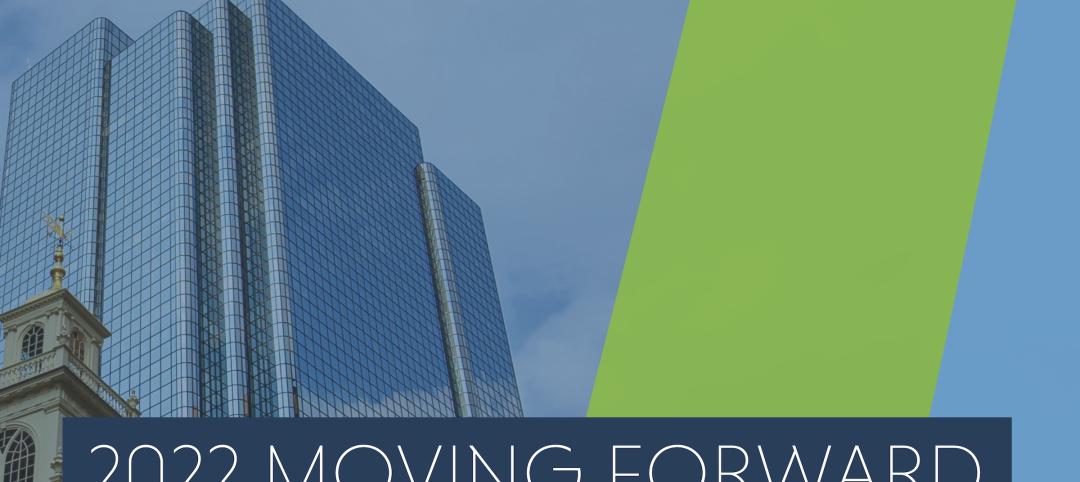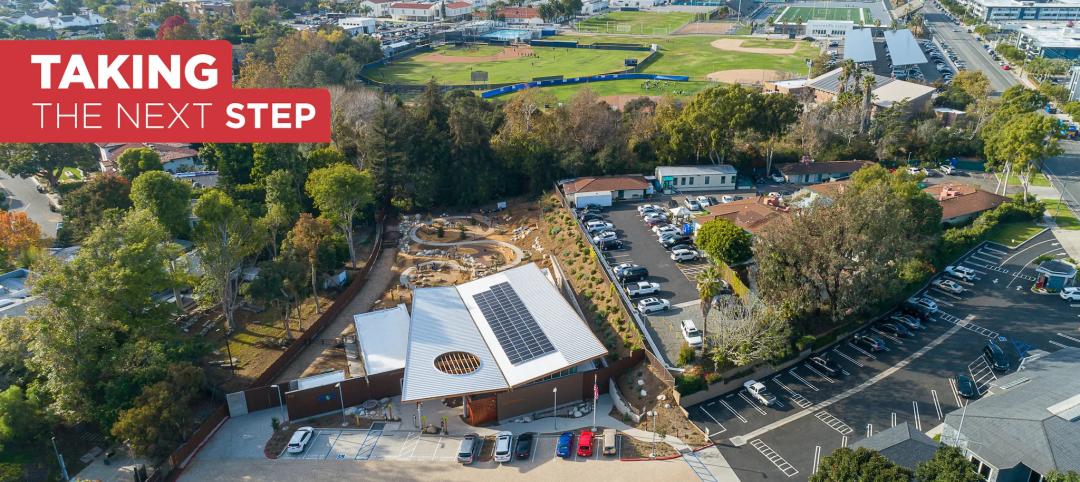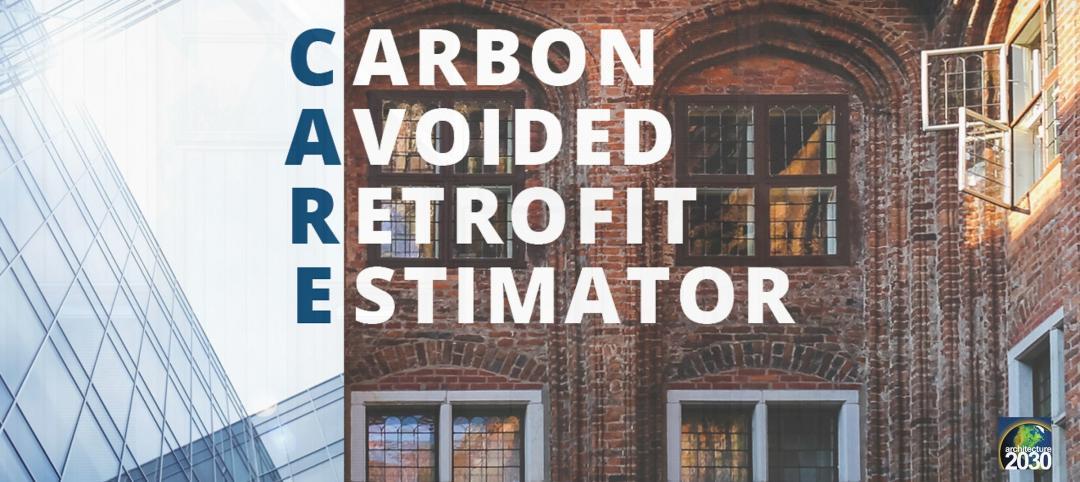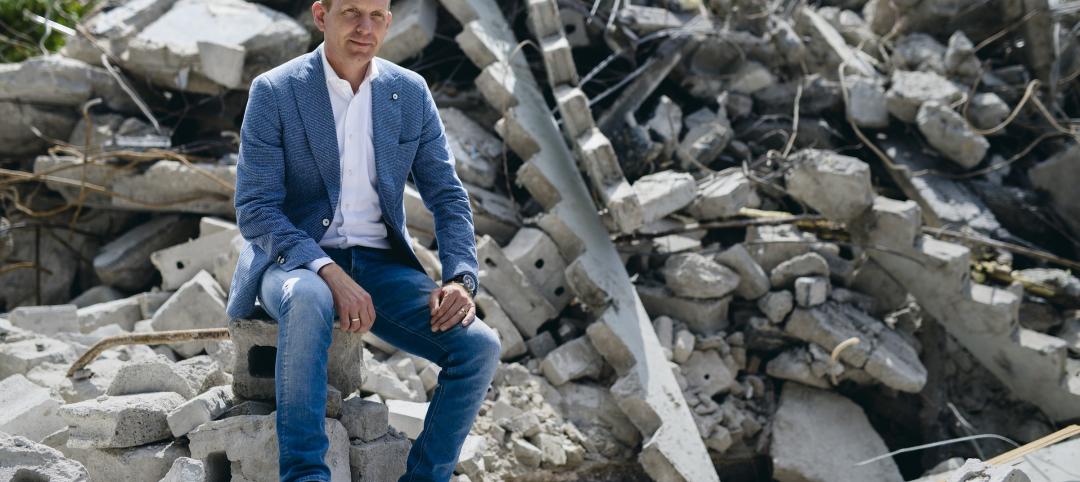In a new brief released on Sept. 29, the U.S. Green Building Council (USGBC) and Green Business Certification Inc. (GBCI) outline an expanded suite of programs and resources focused on improving building and community resilience in the face of climate risks. While governments and businesses focus on economic recovery, more frequent and severe climate events threaten to interrupt progress. Green building helps companies and communities adapt to and mitigate the effects of these growing climate concerns.
“Green buildings are the first step to creating more resilient businesses and communities while also supporting economic development and growth,” said Mahesh Ramanujam, president and CEO of USGBC and GBCI. “We know people, especially those in our most vulnerable communities, are already experiencing the costs of a changing climate and the resilience of the people in these structures is a critical factor. Resilient design, construction and operations verified through green building and infrastructure certifications can help reduce risk and vulnerability. USGBC and GBCI’s resources serve as a roadmap for resilience that has the ability to save companies money and improve the standard of living for all.”
The building and construction industry must accelerate its adoption of strategies and practices that respond to climate threats communities are currently facing. The new brief outlines USGBC and GBCI’s existing resilience resources along with new opportunities and include:
— LEED: The most widely used green building rating system offers a series of resilience design pilot credits that ensure project teams are aware of and are addressing vulnerabilities. The credits are available for new construction and align with the RELi Rating System. Currently, more than 200 projects have registered to pursue the credits. The LEED for Cities and Communities program outlines options to enhance resilience beyond a single building. More than 110 cities and communities have certified.
— Certification Systems: GBCI integrates resilience strategies across several rating systems. RELi takes a holistic approach to resilience and helps developers, companies, city planners and others assess and plan for acute hazards. LEED credits can also count toward RELi certification. PEER serves as a roadmap for designing and operating resilient and reliable power systems and microgrids and has more than 30 certified projects that serve more than seven million people. SITES focuses on creating regenerative landscapes and ecologically resilient communities and has nearly 150 projects participating.
— Data & Technology: Data will define the future of green building, which is why USGBC is working with Coastal Risk Consulting to deliver a RiskFootprint™ for buildings, communities and cities that provides a climate risk analysis. The service will integrate with LEED, Arc and GBCI rating systems to help assess a project’s vulnerability.
— Workforce Education: Equipping professionals with the latest skills and knowledge is critical to scaling resilient practices and Education @USGBC offers courses from experts working on resilience. USGBC will also open a call for ideas on enhancing resilience across the green building industry. GBCI is also developing a new RELi professional credential expected to be ready in 2021.
— Advocacy: USGBC works with federal, state and local governments and jurisdictions to advocate for policies, guidance and incentives that support green buildings and communities. A goal of that work is to ensure disaster recovery funds are spent on high quality, resilient buildings that mitigate climate risks and promote social equity and health. The latest advocacy activities are housed in the USGBC Center for Resilience.
— Partnerships: USGBC will leverage its network of members, partners and LEED users to build a community of leaders for resilient buildings, communities and cities. USGBC will establish partnerships with a variety of organizations committed to advancing resilience.
The resilience offerings are part of USGBC’s reimagined vision and economic recovery strategy, Healthy People in Healthy Places Equals a Healthy Economy. Resilience is a critical component of building a healthier, more sustainable future, but can also influence how companies and governments respond to social and economic disruptions. Resilience planning helps future proofs assets and support communities in times of crisis.
Over the last two years, reportedly more than 16 million people globally, including an estimated 1.2 million Americans, were displaced because of climate events. A number that is expected to continue to grow impacting livability and workability. In a 2019 report from CDP, a group of the world’s largest companies valued climate risks to their businesses at almost $1 trillion – with many likely to occur within the next five years. It reinforces the need for immediate solutions that can help mitigate social and economic costs that are predicted in the near term. Green building programs like LEED, RELi and other GBCI rating systems outline for business leaders and government officials necessary actions and provide a framework for communicating progress.
To learn more about resilience in the building industry, USGBC’s annual Resilience Summit will be held at Greenbuild 2020 on Oct. 1, featuring resilience leaders and the opportunity to learn the newest research and technology around resilience-enhancing designs, technologies, materials and methods. Registration for the Summit and Greenbuild virtual events is open.
Related Stories
Sustainability | Apr 4, 2023
NIBS report: Decarbonizing the U.S. building sector will require massive, coordinated effort
Decarbonizing the building sector will require a massive, strategic, and coordinated effort by the public and private sectors, according to a report by the National Institute of Building Sciences (NIBS).
Geothermal Technology | Mar 22, 2023
Lendlease secures grants for New York’s largest geothermal residential building
Lendlease and joint venture partner Aware Super, one of Australia’s largest superannuation funds, have acquired $4 million in support from the New York State Energy Research and Development Authority to build a geoexchange system at 1 Java Street in Brooklyn. Once completed, the all-electric property will be the largest residential project in New York State to use a geothermal heat exchange system.
Sustainability | Mar 16, 2023
Lack of standards for carbon accounting hamper emissions reduction
A lack of universally accepted standards for collecting, managing, and storing greenhouse gas emissions data (i.e., carbon accounting) is holding back carbon reduction efforts, according to an essay published by the Rocky Mountain Institute.
AEC Innovators | Mar 3, 2023
Meet BD+C's 2023 AEC Innovators
More than ever, AEC firms and their suppliers are wedding innovation with corporate responsibility. How they are addressing climate change usually gets the headlines. But as the following articles in our AEC Innovators package chronicle, companies are attempting to make an impact as well on the integrity of their supply chains, the reduction of construction waste, and answering calls for more affordable housing and homeless shelters. As often as not, these companies are partnering with municipalities and nonprofit interest groups to help guide their production.
Sustainability | Mar 2, 2023
The next steps for a sustainable, decarbonized future
For building owners and developers, the push to net zero energy and carbon neutrality is no longer an academic discussion.
AEC Innovators | Mar 2, 2023
Turner Construction extends its ESG commitment to thwarting forced labor in its supply chain
Turner Construction joins a growing AEC industry movement, inspired by the Design for Freedom initiative, to eliminate forced labor and child labor from the production and distribution of building products.
Sustainable Design and Construction | Feb 28, 2023
Architecture 2030 launches free carbon calculator for retrofit projects
Architecture 2030’s Carbon Avoided Retrofit Estimator (CARE) tool allows project teams and building owners to accurately quantify the carbon “savings” in retrofit or reuse projects versus new construction.
AEC Innovators | Feb 28, 2023
Meet the 'urban miner' who is rethinking how we deconstruct and reuse buildings
New Horizon Urban Mining, a demolition firm in the Netherlands, has hitched its business model to construction materials recycling. It's plan: deconstruct buildings and infrastructure and sell the building products for reuse in new construction. New Horizon and its Founder Michel Baars have been named 2023 AEC Innovators by Building Design+Construction editors.
Senior Living Design | Feb 15, 2023
Passive House affordable senior housing project opens in Boston
Work on Phase Three C of The Anne M. Lynch Homes at Old Colony, a 55-apartment midrise building in Boston that stands out for its use of Passive House design principles, was recently completed. Designed by The Architectural Team (TAT), the four-story structure was informed throughout by Passive House principles and standards.
Sustainability | Feb 9, 2023
New guide for planning, designing, and operating onsite water reuse systems
The Pacific Institute, a global nonpartisan water think tank, has released guidance for developers to plan, design, and operate onsite water reuse systems. The Guide for Developing Onsite Water Systems to Support Regional Water Resilience advances circular, localized approaches to managing water that reduce a site’s water footprint, improve its resilience to water shortage or other disruptions, and provide benefits for local communities and regional water systems.

















